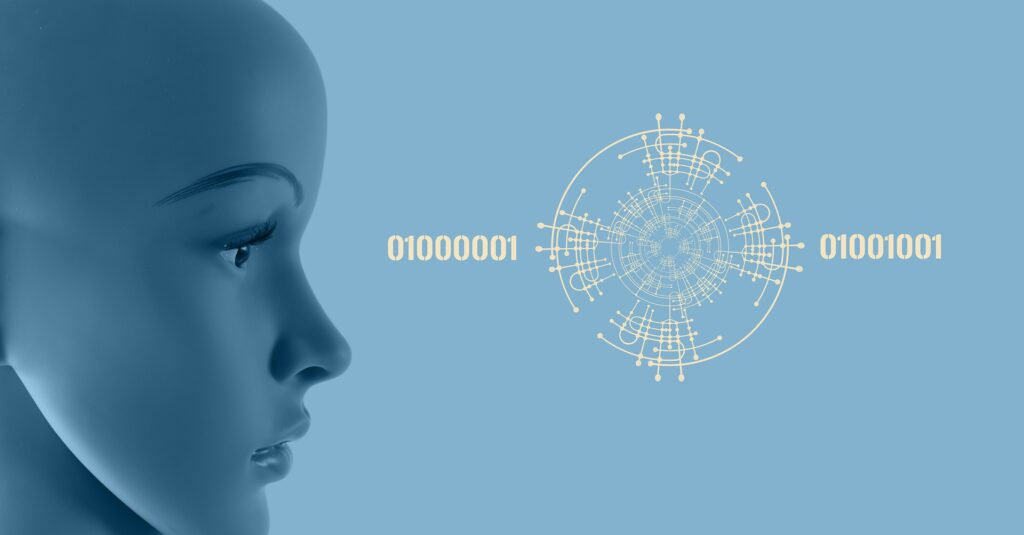Blog Post
Ethical Considerations of Artificial Intelligence

The Ethical Considerations of Artificial Intelligence” is a topic that explores the moral and societal implications of developing and using AI technologies. It raises questions about the potential impact of AI on human rights, privacy, and autonomy. It is important to consider these ethical issues as we continue to advance AI technology in order to ensure that it is developed and used in a responsible and safe manner. AI’s rapid advancement raises ethical concerns regarding its use, ownership, accountability, and impact on humanity. The need to address these challenges is urgent as AI surpassing human capabilities remains a possibility. Recently, the White House invested $140 million to better understand and mitigate these challenges while harnessing AI’s potential.
Bias and Discrimination
AI systems can perpetuate and amplify unfair outcomes in areas such as hiring, lending, criminal justice, and resource allocation due to societal biases present in the data they are trained on. For example, if an AI system is used to screen job applicants, it could learn and perpetuate gender or racial biases present in historical data of successful hires, leading to discrimination against candidates who do not match the historical hirings of the company. U.S. agencies are warning to push back against AI bias and hold organisations accountable for perpetuating discrimination.
Transparency and Accountability
Transparency and Accountability
AI-powered systems often function in a “black box” state, where they offer limited interpretability regarding their decision-making process. This lack of transparency can be highly problematic in critical domains such as healthcare or autonomous vehicles, where it is vital to know how decisions are made and who is responsible for them. When AI systems make errors or cause harm, clarifying accountability is crucial to ensure appropriate corrective action. To address these challenges, researchers are working on developing explainable AI that can help characterise the model’s fairness, accuracy, and potential biases.
Creativity and Ownership
When a painter finishes a painting, they are the rightful owner of it. However, when a human creator generates a piece of digital art by entering a text prompt into an AI system that was developed by a separate individual or organisation, determining ownership becomes more complicated. Who owns the AI-generated art? Who has the right to commercialise it? Who is responsible for any infringement that might occur? This is an issue that is still evolving as AI technology advances faster than regulators can keep up with. As human creators use AI systems developed by others to produce digital art, it is essential that lawmakers provide clear guidelines and clarify ownership rights to help navigate potential infringements.
Social Manipulation and Misinformation
It is unfortunate that fake news, misinformation, and disinformation are widespread in politics, competitive business, and many other fields. These false narratives can be spread using manipulated AI algorithms, which can influence public opinion and exacerbate social divisions. For instance, deepfakes, a technology capable of generating realistic yet fabricated audiovisual content, pose a significant risk to election interference and political stability. To combat this problem effectively, we need to be vigilant and implement countermeasures.
Privacy, Security, and Surveillance
The effectiveness of artificial intelligence (AI) often depends on the availability of large volumes of personal data. As AI usage expands, concerns arise about how this information is collected, stored, and utilised. For instance, China is leveraging tools such as facial recognition technology to reinforce its extensive surveillance network, which critics argue is causing discrimination and repression of certain ethnic groups. In the realm of AI, it is critical to prioritize the preservation of individuals’ privacy and human rights. This necessitates implementing robust safeguards against data breaches, unauthorised access to sensitive information, and protection against excessive surveillance.
Job Displacement
The rapid development of AI automation has brought concerns that it could replace human jobs, leading to widespread unemployment and further economic inequalities. On the other hand, some people argue that while AI may replace knowledge workers, just as robots have replaced manual labourers, it also has the potential to create many more jobs than it eliminates. To address the potential impacts of job displacement, proactive measures such as retraining programs and policies that support a smooth transition for affected workers, as well as social and economic support systems are necessary.
Autonomous Weapons
There are ethical concerns that arise with the development of AI-powered autonomous weapons. These weapons can be misused and can lead to catastrophic consequences since they take away human control over life-and-death decisions. Therefore, there is a need for international agreements and regulations to govern the use of such weapons. Ensuring responsible deployment of these weapons is essential to prevent any potential misuse and to hold those accountable for any negative consequences.
Addressing the ethical issues related to artificial intelligence requires a collaborative effort among technologists, policymakers, ethicists, and society as a whole. To ensure responsible deployment of AI, it is crucial to establish robust regulations, promote transparency in AI systems, encourage diversity and inclusivity in development, and foster ongoing dialogues. By proactively engaging with these concerns, we can harness AI’s incredible potential while upholding ethical principles to shape a future where socially responsible AI is the norm.

